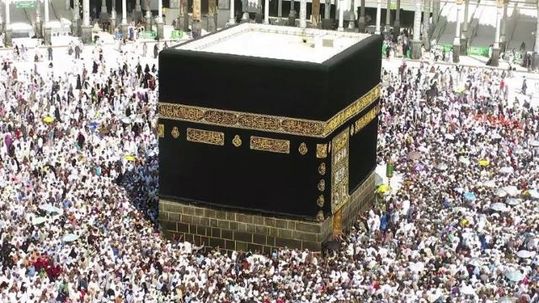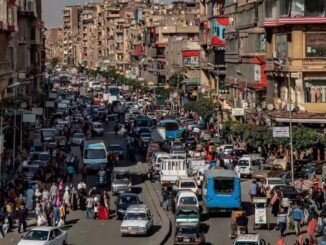
Since Abdel Fattah al-Sisi has pursued office in mid-2014 after he led a military coup in 2013 against Mohamed Morsi, the first democratically elected president, the two main goals of al-Sisi were to maintain social order and improve Egypt’s wrecked economy.
In fact, he has tightened his grip on the society by silencing opposition, restricting protests and curbing human rights organization, but “he has struggled with the latter.”
As a result, Egypt seeks to secure $12 bn loan from the International Monetary Fund (IMF). “But although that may provide much-needed fiscal stability, but can al-Sisi introduce Fund-mandated reforms without fueling social tensions? “according to the Financial Times.
In the years following the 2011 Arab Spring, Egypt has found itself in one of its harshest economic crises. Tourism has withdrawn as a result of security insatiability in Sinai Peninsula. Regional trade is languishing as political instability has reached unprecedented levels.
In addition, al- Sisi’s attempts to provide enough jobs for the country’s youth – over half the population is under 25 – have proved to be particularly challenging, especially given the withdrawal in foreign investment .
With unemployment among young people as high as 40 %, frustration levels are growing. Many are turning to drugs and joining the legions of migrants bound for Europe, as evidenced last week by the capsize of a migrant vessel off the northern port of Rashid.
The country’s economic crisis has deepened by the decline of the Egyptian pound at an artificially high exchange rate and the costly financing of government debt, which has eaten away at dwindling foreign currency reserves.
FT said, “al- Sisi has vainly sought to revive the economy.” However, his shunt Suez Canal expansion project, which costs $8.2 billion, was ultimately disappointing move.”
In fact, al-Sisi’s only resources were the financial support from wealthy Gulf allies, “but falling oil prices may squeeze the generosity of Saudi Arabia, Kuwait and the UAE,” reported the FT.
As a result, Sisi has now turned to the IMF for help as the only hope as he is seemingly running out of ideas, and concerned that the economy might further contract.
The Financial Times pointed that seeking the IMF loan is awkward as it may cause social instability as there were precedents before in 1970s,”
It is a controversial move given Egypt’s past dealings with the Fund, whose neo-liberal medicine for the country’s perennial ills led to the infamous “Bread Riots” of the late seventies.”
When the IMF had urged President Anwar al-Sadat to cut off subsidies, protests spread in the country that left scores dead and hundreds injured. As a result, Anwar al-Sadat was forced to restore subsidies. Ever since, successive Egyptian governments have shied away from unpopular reforms for fear of provoking unrest.
The FT predicts that al- Sisi will be just as nervous as his predecessors about approaching the IMF. The Egyptian authorities started adopting economic reform plan ahead the IMF loan.
In return for the bailout, Egypt will need to launch an austerity drive to reduce the budget deficit, about 11 % of GDP. The government has proposed a number of reforms, which look like they are straight out of the IMF playbook.
“Al-Sisi is aiming for a substantial debt reduction by 2019 through a number of tough measures, including cuts to fuel and electricity subsidies and the introduction of VAT to broaden the tax base. Further devaluations of the Egyptian pound, following March’s ground-breaking intervention, are also expected,” according to FT.
But despite the IMF will support Egypt and al-Sisi harsh austerity measures, “Will the IMF loan, in tandem with the proposed reforms, provide the economic stimulus and attract the western investment that is so sorely needed?”
In fact, there are many challenges in the Egyptian economy that may act as obstacles for benefiting from the loan. First, the “Archaic bureaucracy, which has traditionally hobbled business, continues to be a disincentive for investors,” said the FT.
Ease business doing in Egypt’s economy is poor, “the country fares poorly in the World Bank’s ease of doing business index, performing particularly badly in the “Trading Across Boarders” and “Enforcing Contracts” categories.”
The FT warned that al- Sisi needs to address these matters urgently, as his reforms will lead to a rise in inflation and an erosion of domestic incomes at least in the short term. However, the condition will be hard and serious in a country with 30 million Egyptians living below the poverty line.
In addition, as an afterthought, and an implicit admission of the hardships to come, the IMF agreement speaks vaguely about “strengthening the safety net to protect the vulnerable during the process of adjustment,” reported IMF
The IMF proposes “rationalizing spending” so that money is available for infrastructure, health and education and social protection. “Whether the IMF genuinely envisions Egypt’s military-industrial complex ceding concessions to the most vulnerable is another matter,” FT said.
In the past, the pain caused by government cuts to basic services has been eased by the Muslim Brotherhood’s social welfare programmes. But al- Sisi’s harsh strict approach towards the Islamists means they are unlikely to be able to provide a safety net in the event of a crisis , “underscoring the delicacy of the President’s position,” said FT.
Social unrest may occur that may also discourage by time the foreign investment in an unstoppable loop.
In the end, al-Sisi’s future prosperity depends on his ability to press ahead with reforms, but if he is to avoid the overcoming the turbulence that shook the Sadat and Mubarak presidencies he will need to” secure financial support from international partners.”
But FT pointed that Al-Sisi’s latest tour to China for G20 summit was discouraging saying,”If al-Sisi’s recent trip to China for the G20 summit is anything to go by, his prospects do not look good.” It continued,”The Egyptian press ridiculed him after he was apparently snubbed by US President Barack Obama. ” FT concluded that ,”Al- Sisi might get some respite from the IMF, but probably not for long.”



